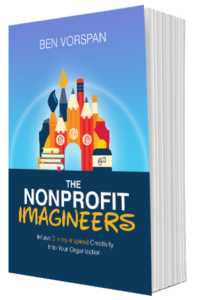
Over the past decade, millennials (born between 1981 and 1996) have become the largest living generation, surpassing baby boomers in sheer numbers. As they settle into adulthood, their influence on industries, markets, and philanthropy is expanding rapidly. Nonprofits, like businesses, must recognize this generational shift and adapt their approaches to engage millennials effectively. Understanding who they are, why they matter, and how to connect with them is crucial for any organization aiming to thrive in the years ahead.
Who Are Millennials?
Millennials are the first generation to grow up with the internet and digital technology integrated into their lives. This has shaped their habits, values, and expectations. They are typically characterized by:
- Tech-savviness: Millennials are comfortable with digital communication, social media, and online transactions.
- Social consciousness: This generation values authenticity, transparency, and social impact. They want to support brands and organizations that align with their values.
- A search for experiences: Millennials prioritize experiences over material goods. They are drawn to causes that provide opportunities to make meaningful contributions and foster community connections.
- Diverse perspectives: As a generation, millennials are more diverse than any before them. They expect inclusivity and equitable representation in the organizations they support.
Why Target Millennials?
Millennials represent a significant and growing segment of the donor base, volunteer pool, and potential advocates for nonprofit organizations. Targeting millennials is not only a matter of keeping up with demographic trends; it’s a strategic necessity. Here’s why:
Rising Economic Power
Millennials are entering their prime earning years. Although many still face financial challenges, such as student debt and housing costs, they are increasingly in a position to contribute to causes they care about. By 2030, millennials are expected to hold five times as much wealth as they do today.Social Impact as a Priority
Unlike previous generations, millennials are highly motivated by social good. According to various studies, millennials are more likely to support brands, businesses, and organizations that demonstrate a commitment to making the world a better place. Nonprofits, by nature, are well-positioned to tap into this desire.Long-Term Engagement
Millennials value long-term relationships with organizations that resonate with their values. They are more likely to engage as recurring donors, regular volunteers, and active community members if they feel a personal connection to the mission. By appealing to their need for transparency, participation, and real impact, nonprofits can build lasting relationships with millennial supporters.Influence Through Advocacy
Millennials are natural advocates who use their social media platforms to amplify the causes they believe in. Their engagement goes beyond financial contributions — they spread the word, create digital movements, and influence their peers. A millennial advocate is a powerful tool for any nonprofit looking to expand its reach.
What Nonprofits Can Learn from Millennial Marketing Trends
To effectively connect with millennials, nonprofits can take a page from the marketing strategies that have successfully targeted this generation. One notable trend is the use of nostalgia — specifically, references to cultural icons and experiences from millennials’ childhoods. From ’90s TV shows and early video games to popular snacks and toys, marketers are tapping into millennials’ desire to reconnect with the joys of their youth. Here’s what nonprofits can learn from this trend:
Create Emotional Connections Nostalgia-based marketing taps into powerful emotions that make people feel more connected to the brands or causes they’re engaging with. Nonprofits can similarly evoke emotions by framing their mission in ways that resonate with millennials’ past experiences and current values. For example, sharing personal stories from the early days of a nonprofit’s work or highlighting long-standing community impacts can help millennial supporters feel like part of a legacy.
Use Relatable and Accessible Messaging Millennials appreciate brands that speak their language and understand their experiences. Just as companies market products with references to popular ’90s cartoons or early 2000s trends, nonprofits can make their messaging relatable by tapping into the social causes, digital culture, and communal aspects that matter most to millennials. Avoid corporate jargon and embrace authenticity in communications.
Leverage Technology and Digital Experiences Millennials expect seamless digital experiences. From online giving platforms to engaging social media content, nonprofits must provide digital engagement that is quick, easy, and mobile-friendly. Incorporating gamification (similar to the nostalgic video games of their youth), virtual events, or digital storytelling can create the kind of interactive experiences millennials gravitate toward.
Foster Community Engagement Millennials are community-oriented and appreciate spaces where they can connect with like-minded individuals. Nonprofits should focus on creating environments that foster collaboration and interaction. Hosting virtual town halls, social media challenges, or group volunteer activities, both online and offline, can provide millennials with meaningful ways to engage with others while supporting a cause.
Highlight the Tangible Impact of Their Involvement Millennials want to see the results of their efforts. Just as nostalgia marketing often highlights products that make people feel good or bring back memories of positive experiences, nonprofits should focus on showing the tangible, positive impact of millennial contributions. Share detailed stories of how donations have helped, offer behind-the-scenes glimpses of your work, and be transparent about the outcomes you’re working toward.
Conclusion: A Generation Worth Investing In
The rise of millennials represents both a challenge and an opportunity for nonprofits. This generation demands authenticity, transparency, and impact. But once millennials feel connected to a cause, they are eager to invest their time, money, and social influence in helping it succeed. By learning from millennial marketing trends — especially the emotional power of nostalgia and the importance of digital experiences — nonprofits can craft meaningful, lasting relationships with the largest and most influential generation of our time.
 Celebrate 2 years of Imagineering!
Celebrate 2 years of Imagineering!
Comments are closed